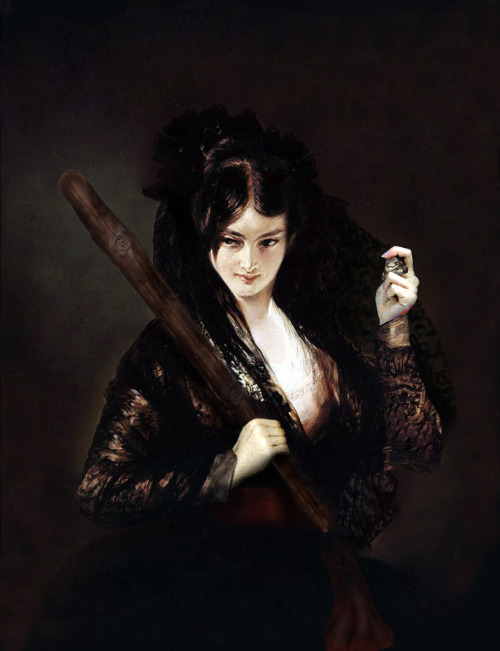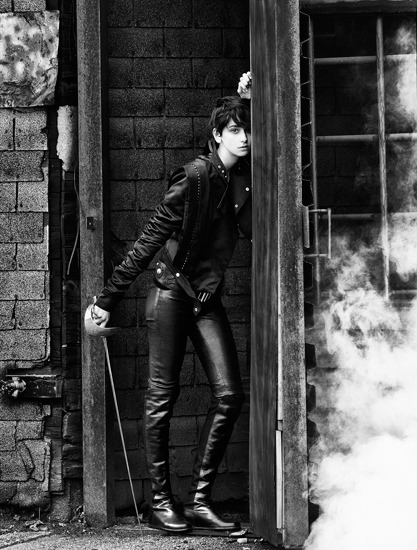Gaze - Blog Posts
Every day in Gaza, I face an impossible choice: treating my sick husband or feeding my hungry children. My children are deprived of education, and my husband suffers from an illness I cannot afford to treat. My dream is simple: a decent life for my children and relief for my husband’s suffering.🙏 Your donation today could change our lives and give us a chance to escape this pain. https://gofund.me/44a53b24
I
I’ve run dry of words to say. I can’t imagine making that decision. I can’t donate directly. I’m so sorry. I’ll share this post and try to help get this attention.
Weak
I am feeble to the winds of your words and the gaze of your azure orbs
I'm floating in
Your warm embrace
Dissolving in
Your loving gaze
I'm losing my sense
of time and space
As long as I remember
You were there
- For eternities
http://www.kickstarter.com/projects/1107767469/get-anna-may-wong-on-public-tv/widget/video.html
From Colorlines:
by Channing Kennedy Thursday, November 10 2011
If you’re reading this, you’re probably interested in the history of racebending and POC representation in cinema — and that means you need to get familiar with Anna May Wong, the black-and-white-era film star who made a career out of smashing barriers in Hollywood. A new documentary by filmmaker Yunah Hong, Anna May Wong: In Her Own Words, can bring her story to PBS, but not without your help.
Wong’s Hollywood career is fascinating and instructive. Despite being a California-born native English speaker who didn’t visit China until adulthood, Wong was only given roles that reinforced stereotypes about hypersexualized, deceitful Asian women. Time’s film critic Richard Corliss identifies three rules that hemmed in Wong’s career, even at the peak of her success: she couldn’t kiss (unless she was being savaged by an Asian man), she had to die, and off-screen, she always got paid a fraction of what her co-stars earned. And for her trouble, she was cast by Chinese newspapers as a traitor and an embarrasment.
So why, as someone subject to her own misrepresentations of Asian women, did Wong take these roles? One answer is illustrated in a role she didn’t get, a cowering Chinese peasant in 1937’s The Good Earth — played in yellowface by German actress Luise Rainer. Landing the roles was Wong’s only chance to humanize the stereotypes.
Want to know how Anna May Wong felt about her career? Yunah Hong’s new documentary, made over the last eight years, tells Wong’s story through new interviews and archival footage. The film is completed, but in order for PBS to air it, Hong has to raise $12,000 in the next 19 days to pay for the archival footage’s licensing fees.
As Hong says on her Kickstarter page:
Many older Asian Americans look down on Anna for playing stock Asian characters. But a younger generation sees her as a pioneering artist who beat the odds in a tough industry. Besides her strength as a woman, I admire her for pushing herself as an actress. When her film roles were limited, she traveled around Europe performing in cabarets, polishing her talents as a singer, dancer and monologuist. When MGM didn’t cast her in The Good Earth, a film set in China, she went to China anyway and filmed her trip. Long before anyone was called a “community activist,” she devoted herself to the Chinese American community’s war effort during World War II. She was way ahead of her time. Her courage to be herself against all odds is truly inspiring, the kind of story I want my ten-year-old daughter to know.
unboliviable:
Salar de Uyuni - Potosi/Bolivia
The largest salt flat is in Bolivia, during the rainy season the ground turns into a huge mirror. Its called the border between Heaven & Earth.
Source: drillkitty :: odiodiodio








temenuga:
In 1808, Napoleon, running out of scenic holiday destinations to invade, somehow totally forgot about his neighbor to the south, Spain. So that year he dispatched his troops, kicking off the Peninsular War. Only 20 years old and working as a barmaid in the town of Valdepenas, Juana Galan was not expecting a surge of French soldiers to come storming through her village. But on June 6, that’s exactly what happened. At that time, most of the men were fighting Napoleon’s forces elsewhere in the nation. Juana, unfazed by things like rifles and Frenchmen and French riflemen, began organizing the women in her village to form a trap for the approaching army. When the army arrived, Juana and her friends were ready. They dumped boiling water and oil on the French troops, which by all accounts will instantly take the fight out of pretty much anyone. Then Juana, armed with only a batan, beat back the heavily armed French cavalry with her squad of village women, almost none of whom were armed with guns. The French retreated, giving up on capturing not just Juana’s town but the entire province of La Mancha, leading to ultimate Spanish victory. Today, she is seen in Spain as a national hero, a symbol of resistance, strength, patriotism, feminism and hitting shit with a stick. (x)


Had a long fucking day






















